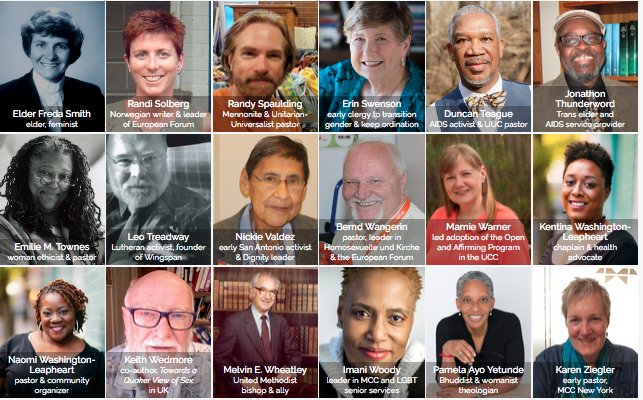Archiving Toolkit | Oral History
Why Conduct Oral Histories?
Oral history provides a fuller, more accurate, more personal picture of the past
LGBTQ individuals and communities often shared their culture, knowledge, and history by word of mouth since letters, diaries, and photographs could endanger lives and livelihoods. Oral histories may be the only way LGBTQ communities can fill in the gaps in their history.
Oral histories have other advantages: Having multiple eyewitness accounts to events contributes various viewpoints and perspectives, they complicate stories and sometimes contradict the written record.
Interviewers seek out people whose stories have been untold or forgotten, asking questions left out of other records–replacing cliched versions of the past, with a nuanced, personal, and engaging history.
The "Best" Guidelines for Planning and Conducting an Oral History Project
Whether you want information for a single interview or an entire project, the "gold standard" primer on doing oral histories is Capturing the Living Past.
The Oral History Association Best Practices provides similarly excellent content on its website.
Presented by Gillian Frank, Assistant Professor of History at Trinity College Dublin. Frank's oral history work can be heard on his podcast Sexing History, which explores how the history of sexuality shapes our present, and Red State Religions, which explores the persistence of liberal people of faith in conservative spaces.
Webinar Topics include:
- an overview of queer oral history theory and methods;
- thinking through the particularities of LGBTQIA oral histories and oral histories of religious subjects;
- specific information about best practices for interviewing religious and LGBTQIA narrators;
- reviewing different technologies/modalities for recording oral histories;
- learning how to ask strong initial and follow up questions; and
- discussion time to discuss ethnical and other concerns you may be thinking about.
Gift Agreements
Interviewees should be informed about the uses of the interview once it is completed. They should know they have copyright in the interview and can "license" who can use the interview or transcript. Permision forms or gift agreements spell out these rights--to copyright and reuse--should be signed before any oral history interview. These guides listed above include excellent examples of permission forms.
Because the collection will be under copyright for decades, often after the donor has passed, archives prefer to own the copyright outright. Use the gift agreement to specify who holds the license to share the interview and in what circumstances it can be licensed. If the donor chooses to retain copyright, reliable, long-term information about whom to contact for copyright requests should be included.
LGBTQ-RAN Oral Histories Webpage

The LGBTQ-RAN Oral Histories Webpage features oral history interviews conducted by LGBTQ-RAN staff, by scholars, and by friends. It includes a keyword searchable transcript of the interview as well as photos and a biographical profile. We also tag each interview so users can quickly find related information on our website. We also submit each oral history to ArchiveGrid to amplify its visibility especially to researchers.
The value of oral histories are enhanced by making them visible, accessible, easy to navigate to topics of interest.
Donating Your Records to an Archives